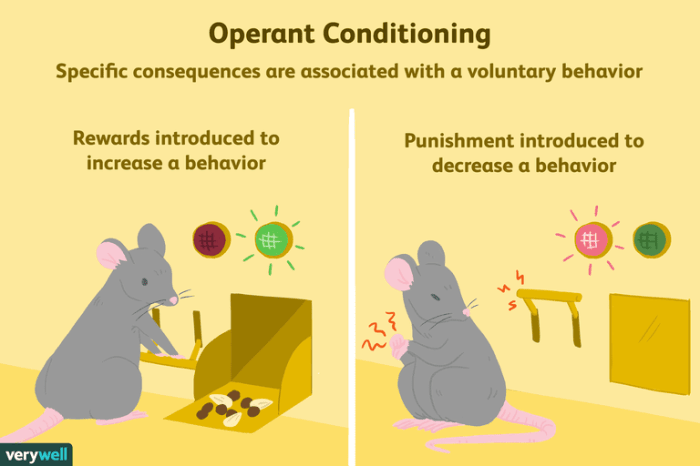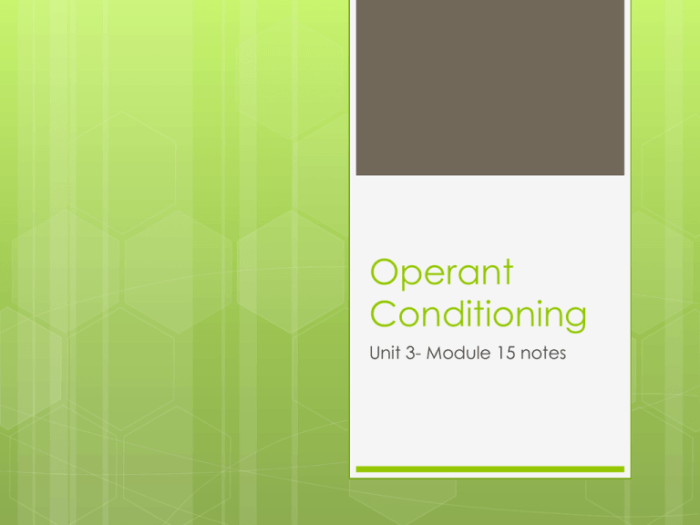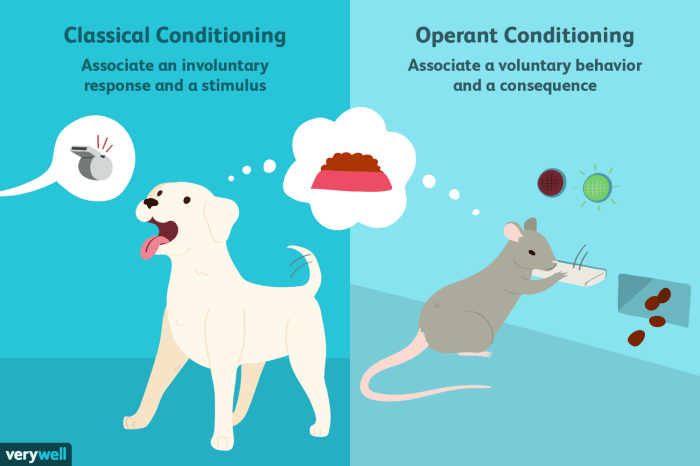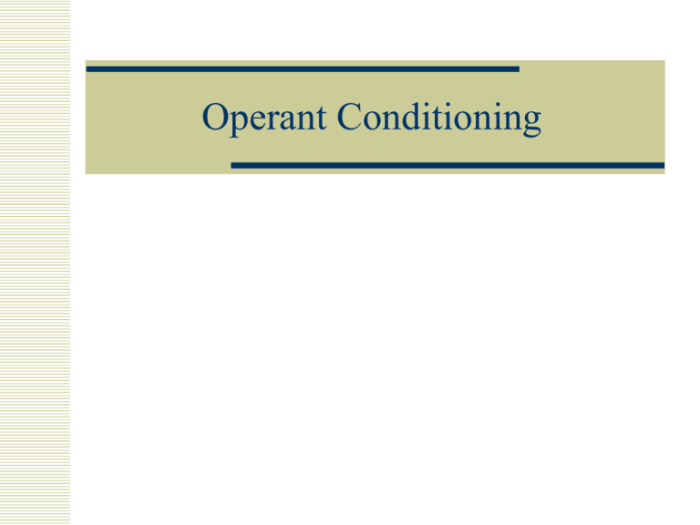Which of the following statements is true about operant conditioning? This question delves into the realm of behavioral psychology, exploring the principles that govern how individuals learn and modify their behaviors in response to their environment. Operant conditioning, a cornerstone of behaviorism, posits that behavior is shaped by its consequences, providing a powerful framework for understanding and influencing human and animal behavior.
This multifaceted concept has far-reaching applications in various fields, including education, animal training, and therapy. By understanding the principles of operant conditioning, we gain insights into the mechanisms that drive behavior, empowering us to create more effective strategies for shaping desired outcomes.
1. Definition of Operant Conditioning

Operant conditioning, also known as instrumental conditioning, is a type of learning in which behavior is shaped and modified by its consequences. It focuses on the relationship between behavior and its outcomes, and how these outcomes influence future behavior.
Key elements involved in operant conditioning include reinforcement, punishment, and the law of effect.
2. Principles of Operant Conditioning

2.1. Law of Effect, Which of the following statements is true about operant conditioning
The law of effect states that behaviors that are followed by positive consequences are more likely to be repeated, while behaviors that are followed by negative consequences are less likely to be repeated.
2.2. Reinforcement
Reinforcement is any consequence that increases the likelihood of a behavior being repeated. There are two types of reinforcement:
- Positive reinforcement: Adding a pleasant stimulus after a desired behavior occurs.
- Negative reinforcement: Removing an unpleasant stimulus after a desired behavior occurs.
2.3. Punishment
Punishment is any consequence that decreases the likelihood of a behavior being repeated. There are two types of punishment:
- Positive punishment: Adding an unpleasant stimulus after an undesired behavior occurs.
- Negative punishment: Removing a pleasant stimulus after an undesired behavior occurs.
3. Applications of Operant Conditioning: Which Of The Following Statements Is True About Operant Conditioning

Operant conditioning is widely used in real-world settings, including:
- Education: Shaping desired behaviors in students.
- Animal training: Training animals to perform specific tasks.
- Therapy: Modifying problematic behaviors in individuals.
3.1. Ethical Considerations
It is important to consider ethical guidelines when using operant conditioning, including:
- Respecting the rights of individuals.
- Using methods that are not harmful or coercive.
- Ensuring that the consequences are appropriate and proportional to the behavior.
4. Comparison with Classical Conditioning

Operant conditioning differs from classical conditioning in several ways:
- Focus: Operant conditioning focuses on the consequences of behavior, while classical conditioning focuses on the association between stimuli.
- Type of learning: Operant conditioning involves voluntary behaviors, while classical conditioning involves automatic responses.
- Predictability: Operant conditioning allows for more control over behavior, as the consequences can be manipulated to influence future behavior, while classical conditioning is more predictable and less influenced by consequences.
Top FAQs
What is the key principle of operant conditioning?
The key principle of operant conditioning is that behavior is shaped by its consequences.
What is the difference between positive and negative reinforcement?
Positive reinforcement involves adding a pleasant consequence to increase the likelihood of a behavior, while negative reinforcement involves removing an unpleasant consequence to increase the likelihood of a behavior.
What is the role of punishment in operant conditioning?
Punishment involves delivering an unpleasant consequence to decrease the likelihood of a behavior.